Church of Ignorance Open Call
Open Call – Church of Ignorance / Schule des Nichtwissens
DH5 Linz, im Rahmen der Ars Electronica
Thank you for your submissions! We will contact you shortly!
Changed Deadline 20.5.2024 !
Überblick
Church of Ignorance / Schule des Nichtwissens ist ein dreitägiges Happening aus Performance, Musik, Ritual, Vortrag, Kolloquium und Party, das von 5. bis 8. September 2024 in Linz stattfindet.
Das Programm gliedert sich in zwei Teile: einen Symposiumsteil namens Schule des Nichtwissens, der sich in theoretischer Hinsicht dem Thema Nichtwissen widmet (Ausschreibung 1), sowie einen künstlerischen Teil namens Church of Ignorance (Ausschreibung 2), der vorwiegend abends stattfinden wird. Zwischen diesen beiden Schwerpunkten wird starker Austausch stattfinden, und beide werden vom selben Kurator*innenenteam (Raphaela Edelbauer, Dominika Meindl, Simon Nagy, Thomas Preindl, Walter Stadler und Kat Suryna) betreut. Problematiken und Potenziale von Unkenntnis, der irreduziblen Komplexität unserer Welt und Wege, mit ihr umzugehen werden somit sowohl aus theoretischer als auch aus praktischer Perspektive verhandelt.
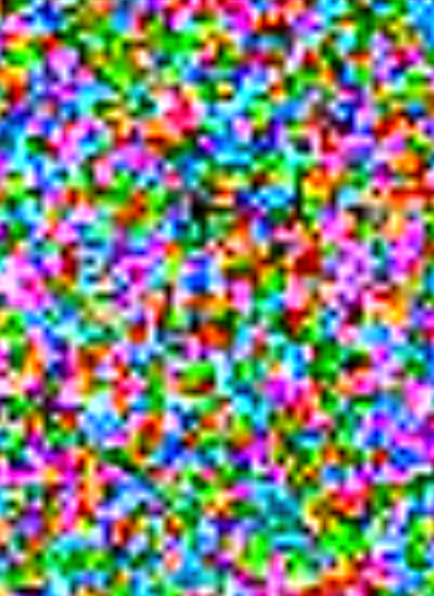
Schule des Nichtwissens
Open Call (Symposiumsteil)
Gegenstand der Ausschreibung: Keynotes, Panels, Kurzvorträge und Workshops
Nichtwissen ist nach dieser Auffassung keine Irregularität, sondern der Normalfall eines funktional differenzierten Wissenschaftssystems, den die moderne Gesellschaft „aushalten“ muss. Zwar legt dies die Frage nahe, ob ein auf die Produktion von Wissen spezialisiertes und mit dem Code wahr/unwahr operierendes Funktionssystem nicht doch in erhebliche Turbulenzen geraten muss, wenn es immer häufiger und immer massiver mit selbsterzeugtem und schwer aufzulösendem Nichtwissen konfrontiert wird.
Peter Wehling, Jenseits des Wissens
Alles, was uns als Menschen ausmacht, wurde durch systematische Wissensgewinnung erreicht – das ist das Credo des westlichen Fortschrittsglaubens.
Ob in logischen Kalkülen, der Wissenschaftsphilosophie oder dem allgemeinen Aufbau unseres Schulsystems: Dass Informiertheit und klare Entscheidbarkeit das Rückgrat der Gesellschaft sind, ist ein selten in Frage gestelltes Paradigma.
Wir wollen im Rahmen eines dreitägigen Symposiums jene Kräfte zusammenbringen, die gerade dieses Paradigma anzweifeln, um uns in wissenschaftlicher, philosophischer und theoretischer Hinsicht mit den Themenbereichen Nichtwissen, Unentscheidbarkeit und Ambivalenz in verschiedenen Vortrags- und Workshopformaten auseinandersetzen. Bewerbungen beliebiger Länge und aus sämtlichen Fachbereichen sind uns willkommen.
Die dabei entstehende Schule des Nichtwissens stellt dem homo faber den homo ignorans zur Seite. Der homo ignorans weiß, dass die Welt chaotisch und komplex ist. Er ist sich bewusst, dass seine Handlungen, Normen und Gesetze ungewollte Wirkungen zeitigen, die nicht unter seiner Kontrolle sind. Er weiß, dass seine Möglichkeiten, rationale, kollektive Entscheidungen zu treffen, eingeschränkt sind. Der homo ignorans hinterfragt Rationalitätsstandards, institutionelle Arrangements, Erkenntnismonopole und hofft auf eine Pluralisierung von Rationalitäten und Wissensakteur*innen. Vor allem aber stellt er sich eine Frage: Kann eine Welt, die so komplex ist wie unsere, mit den herkömmlichen Vehikeln binärer Wahrheitssysteme ganz generell noch begriffen werden?
Wir hoffen auf Beiträge, die die historische wie die soziologische Dimension des Nichtwissens berühren – auf solche, die Gesellschaftsstrukturen auf ihr Verhältnis zur Wissensproduktion abklopfen ebenso wie epistemologische oder chaostheoretische Grundlagenarbeit.
Erforderliche Unterlagen: Abstract, Informationen zu Länge und Sprache, Vita
Church of Ignorance
Open Call (künstlerischer Teil)
Gegenstand der Ausschreibung: Musik, Performance, Theater, Literatur, Klanginstallationen, Technik, Objekte, Rituale
Mit der Church of Ignorance wird eine neue Kirche aus der Taufe gehoben: die Kirche des Nichtwissens. In einem dreitägigen Happening wird dieser neu geschaffene Tempel das Publikum hinter den Schwarzschildradius des Wissens führen. Sie schafft Sinn durch Unsinn und lehrt die Agnosie. Sie findet Techniken, die der allgemeinen Wut und Depression ob der immer erdrückender wirkenden Ohnmacht etwas entgegensetzt, das den Menschen Halt und Zusammenhalt gibt.
Im künstlerischen Abendprogramm, das den theorielastigen Nachmittagen eine praktische Gewichtung entgegensetzt, erforscht die Church of Ignorance vor allem den Umgang mit den entdeckten Ambivalenzen – das quasi, was wir dem Nichtwissen entgegensetzen können.
Dabei bewegen wir uns in einem traditionsreichen Feld: Hat der Mensch nicht schon immer Ritual und Religion ebenso wie die spontan-eruptive Sinnstiftung des Absurden genützt, um die Grenzen des (Un-)Wissens besser ertragen zu können? Die Kirche, die uns vorschwebt, reproduziert dabei nicht die Fehler und Gewaltsysteme der bestehenden Kirchen. In einem lustvollen Zugriff auf die Gemeinplätze und Untiefen des Katholizismus werden zwar Trance und wundersame Wandlung zelebriert – jedoch auf eine Weise, die nicht das verhärtete Dogma, sondern die vollkommene Haltlosigkeit fehlender Glaubenssysteme in den Mittelpunkt rückt.
Herzlich eingeladen sind Beiträge sämtlicher Kunstrichtungen, die sich mit den Themengebieten Nichtwissen, Dodelei, Ambivalenz, Unentschlossenheit, Fuzziness und Alogik auseinandersetzen. Wir suchen nach ernsten wie nach parodistischen Beiträgen, ja, umso mehr nach solchen, die beides sind, weil unserer Meinung nach kein Unterschied zwischen diesen bestehen muss. Gerade durch die Aufhebung artifizieller Gegensätze bietet die Church of Ignorance einen Umgang mit der politischen und sozialen Überforderung unserer Zeit an; von Klimakatastrophen, Umweltkrisen, Kriegen und Populismen bis hin zur unabwendbaren Verwirrung durch eine immer komplexer werdende Wissenschaft per se.
Erforderliche Unterlagen: Projektbeschreibung, Probe aus bisherigen Arbeiten, Kostenaufstellung
Open Call Church of Ignorance / School of Ignorance
School of Ignorance
Open Call Symposium
Subject of the call for proposals: Keynotes, panels, short presentations and workshops
According to this view, ignorance is not an irregularity, but the normal case of a functionally differentiated scientific system that modern society must "endure". This does raise the question of whether a functional system that specialises in the production of knowledge and operates with the code true/untrue must not run into considerable turbulence if it is confronted more and more frequently and on an increasingly massive scale with self-generated ignorance that is difficult to resolve.
Everything that defines us as human beings was achieved through the systematic acquisition of knowledge - that is the credo of the Western belief in progress.
Whether in logical calculations, the philosophy of science or the general structure of our school system: the fact that information and clear decision-making are the backbone of society is a paradigm that is rarely questioned.
As part of a three-day symposium, we want to bring together those forces that question this paradigm in order to deal with the topics of ignorance, undecidability and ambivalence from a scientific, philosophical and theoretical perspective in various lecture and workshop formats. We welcome applications of any length and from all subject areas.
The resulting school of ignorance will place homo faber alongside homo ignorans. The homo ignorans knows that the world is chaotic and complex. He is aware that his actions, norms and laws have unintended effects that are not under his control. He knows that his ability to make rational, collective decisions is limited. The homo ignorans questions rationality standards, institutional arrangements and knowledge monopolies and hopes for a pluralisation of rationalities and knowledge actors. Above all, however, he asks himself one question: Can a world as complex as ours still be understood with the conventional vehicles of binary truth systems in general?
We hope to receive contributions that touch on the historical and sociological dimensions of ignorance - contributions that examine social structures in terms of their relationship to knowledge production as well as basic epistemological or chaos-theoretical work.
Required documents: Abstract, information on length and language, CV
Church of Ignorance
Open Call (artistic part)
Subject of the call: music, performance, theatre, literature, sound installations, technology, objects, rituals
With the Church of Ignorance, a new church is being launched. In a three-day happening, this newly created temple will take the audience beyond the Schwarzschild radius of knowledge. It creates meaning through nonsense and teaches agnosia. It finds techniques that counteract the general anger and depression caused by the increasingly overwhelming sense of powerlessness, giving people support and cohesion.
In the artistic evening programme, which counters the theory-heavy afternoons with a practical emphasis, the Church of Ignorance primarily explores how we deal with the ambivalences we discover - in other words, what we can do to counter ignorance.
In doing so, we are moving in a field rich in tradition: haven't humans always utilised ritual and religion as well as the spontaneous, eruptive creation of meaning through the absurd in order to better endure the limits of (un)knowledge? The church we have in mind does not reproduce the errors and systems of violence of the existing churches. Trance and miraculous transformation are celebrated in a pleasurable access to the commonplaces and shallows of Catholicism - but in a way that does not focus on the hardened dogma, but on the complete lack of support of missing belief systems.
We cordially invite contributions from all artistic disciplines that deal with the themes of ignorance, doctrine, ambivalence, indecision, fuzziness and alogic. We are looking for both serious and parodic contributions, and even more so for those that are both, because in our opinion there need be no difference between them. It is precisely through the cancellation of artificial opposites that the Church of Ignorance offers a way of dealing with the political and social overload of our time; from climate catastrophes, environmental crises, wars and populisms to the inevitable confusion caused by an increasingly complex science per se.
Required documents: Project description, sample from previous work, cost breakdown
Programm
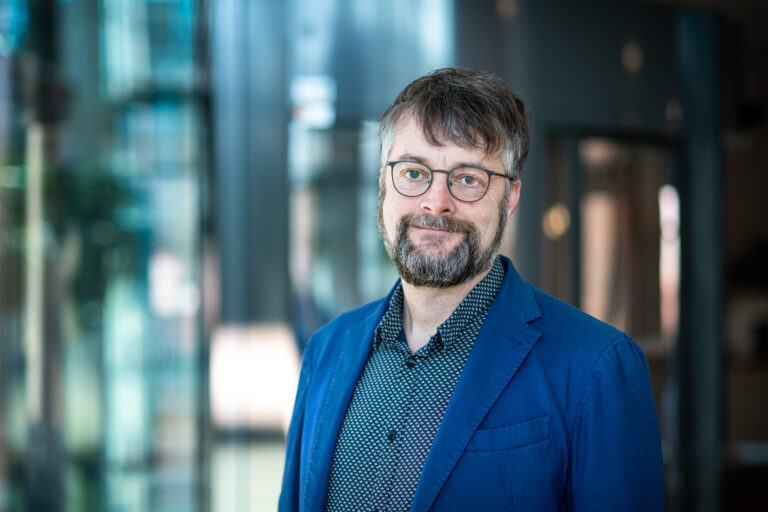
Lecture by Matthias Groß
Ignorance is often seen as a state of stupidity or denial. However, not knowing can not only be a form of protection and in everyday life decisions often need to be made before “reliable” knowledge is available. Worse, once knowledge is available the horizon of what is not known (nonknowledge) may widen. Thus, nonknowledge needs to be treated as regular and normal. What is needed are ways to present and discuss nonknowledge in an “honest” manner instead of trumpeting safety when there is none.
Keynote by Anna Freudenthaler: Not-Knowing in Psychoanalytic Theory and Practice
Panel:
Sebastian Baryli – Psychoanalytical pedagogy as non-knowledge
Jasmin Kargin – Not-/knowing in the concept of perversion
Klaus Doblhammer – The unconscious and non-knwoledge
Amelie Zadeh – Non-knowledge in dreaming
Psychoanalysis was conceived by Sigmund Freud to study a factor of human life he encountered in his clinical experience. He named this factor the unconscious: something that is known without the subject knowing that it knows about it. This constitutes the centre of psychoanalytical theory and of psychoanalysis as a treatment. The contradiction inherent in the definition of the unconscious has led psychoanalysis to be called an impossible profession: how can we know anything about it? Far from being a simple negation of knowledge the unconscious has effects not only on dreams and speech but on perception, enjoyment, life choices, health,... Freud approached this in a scientific way, as sciences are driven by questions addressing unknown factors, producing knowledge when answered.
Jacques Lacan emphasised the tool and vehicle of psychoanalysis and perhaps the basis of human life: language. He described the unconscious as structured like a language resulting in the split subject (between knowing and not-knowing). He did not only enrich psychoanalysis with philosophy and bring psychoanalysis to other fields as well, but he passionately vouched for the unconscious at a time when a different scientific discourse centred around expertise, knowing and consciousness seemed to take over the psychoanalytic discourse.
Let's wager to breach the impossible by constructing a bridge of language to say
something in the order of truth. These models and concepts will be discussed: Knowledge in the symbolic and the imaginary; the real which lies beyond knowing; the logic of an analysis and the handling of unconscious phenomena (psychoanalytic technique); the body as a Moebius strip; truth and desire.
With the interactive installation We are God’s hemorrhoids 3000, visitors to the Church of Ignorance can confess their sins. Users speak their confession into a microphone, a computer analyses the spoken words with the help of artificial intelligence and then evaluates them "objectively". At the end, the users receive a printout with a rating. The more interesting and better the confession is, the more likely they are to get a discount at the bar.
The point is that artificial intelligence will not be able to seriously judge confessions. Confessions will only be evaluated randomly, but not their actual content. Ideally, this will also lead to similar confessions being rated differently. It can be assumed that users will talk about their confessions and question the ratings. This creates an analogy to the Catholic Church, as double standards and opportunism (people confess in order to gain a personal advantage) are also prevalent there.
[caption id="attachment_1502" align="alignnone" width="768"]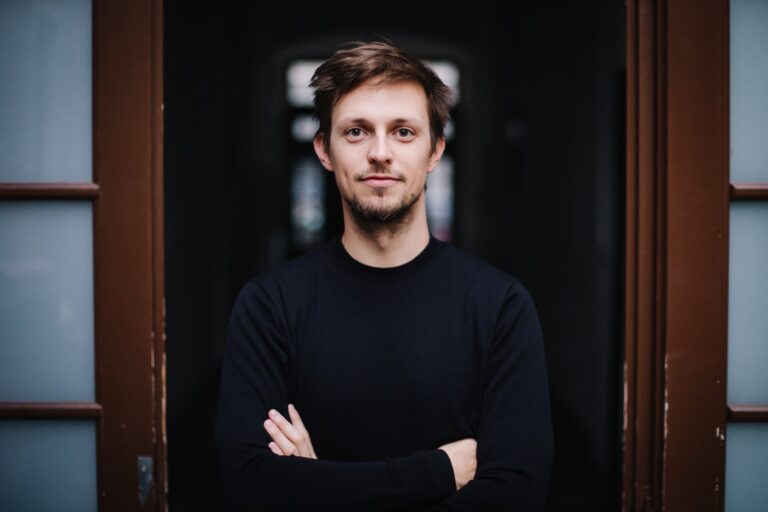 Fotocredit: Doris Himmelbauer[/caption]
Fotocredit: Doris Himmelbauer[/caption]
Thomas Kranabetter
*1989, media designer and creative worker
Lives and works in Vienna, has been building cocktail robots for years, films music and art videos, photographs people and places, mostly builds interactive installations, exhibitions in the UK (Summerset House), USA (Fantastic Fest), Germany (Meta Marathon) and Austria (including Ars Electronica and Steirischer Herbst), writes short texts privately. Prefers to.
Website: Farbausschlag.xyz
Instagram: th_farbe

Reinhard Sprung
*1985, programmer and robot afficionado
Lives and works in Vienna, builds machines for human pleasure and entertainment, exhibitions in USA (Fantastic Fest) and Austria (Ars Electronica, Steirischer Herbst, Roboexotica), stuffs his own sausages and brews beer.
Messe zu Ehren des Linz
Beichte zu Abwehr des Land
Gestaltet wird eine Messe, basierend auf elektronischer Musik, literarischen Texten und Performancekunst - ein interdisziplinäres Projekt. Die einzelnen Teile werden nicht seriell präsentiert, sondern ineinander verwoben. Als Textbasis wird der Lyrikband Oh Wien, so siehe die Sau (dein Land) - abgewandelt in Oh Linz, siehe die Sau (dein Land) - von Lydia Haider, der im Oktober 2023 in der Kölner parasitenpresse erschienen ist, herangezogen.
Eingebunden in das Projekt respektive die Umsetzung der Texte, sowie der Tanzperformance sind Schauspielerinnen wie Marlene Hauser, Julia Richter, Apollonia Bitzan oder Jennifer Weiss.
Parallel zur Messe findet die Abbitte in der 3 Minuten Disko statt.
Künstler*innen:
Lydia Haider
Apollonia T. Bitzan
Marlene Hauser
Jennifer Weiss
Teresa Terror
Julia Franz Richter
Katarina Maria Trenk
Elisabeth Seifriedsberger
[caption id="attachment_1504" align="alignnone" width="768"]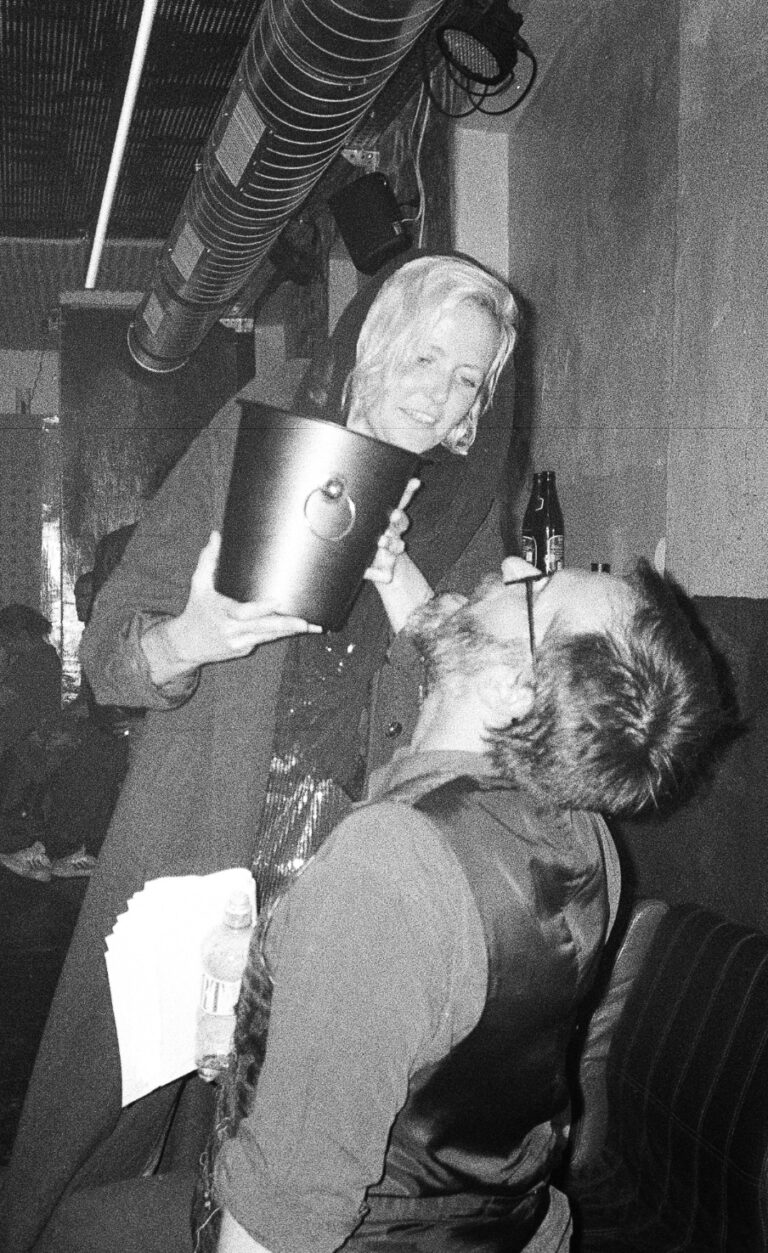 Fotocredit: Apollonia T. Bitzan[/caption]
Fotocredit: Apollonia T. Bitzan[/caption]
3 Minuten Disco Da Holi Wata
Tekkno und höchster Trash zum Abbitten
In Zeiten allgegenwärtiger Privatisierung weist die 3 Minuten Disko auf die Exklusivität gewisser Szenen und Kreise hin, indem sie selbst einen exklusiven und privaten Bereich für 3 Minuten je Person schafft. Künstlerische Auseinandersetzung und Überidentifizierung mit dem Thema Religion und Exklusivität.
Mit unserem Projekt versuchen wir eine Basis der kritischen Reflexion mit oben genannten Themen zu ermöglichen: der Auseinandersetzung mit exklusiven und privaten Räumen. Da Holi Wata sprechen:
Wir sind es, Da Holi Wata, abgesandt, um euch zu erlösen. Wir sind es, die euch die Richtung weisen, die Richtung, die euer vom Schweiße aufgeweichtes Gebein zum Gehen bringt. Ihr werdet marschieren, der Boden wird zu eurem externen Geschlecht, das Rauchwerk wird eure Sinne schärfen, das Licht wird sich als Heiligstes offenbaren und euer Innerstes wird nach außen drängen. Und die schnellen Rhythmen lassen die Gewissensgifte verpuffen – die Disharmonie wird das Sündenminus wieder auf Null setzen. Ein kurzer Aufenthalt bei uns verschafft eine Eintrittskarte ins Paradies. Wir schwören es und geben Garantie. Aber danach müsst ihr brav sein.
Da Holi Wata sind:
Patrick Buchinger (instruments)
*1992, wohnt in Linz; arbeitet für das ArsElectronica Linz als IT-Mitarbeiter
Lukas Haider (instruments)
*1993, wohnt in Linz; arbeitet bei einem sozialen Träger, ist in der Behindertenarbeit tätig
[caption id="attachment_1505" align="alignnone" width="768"]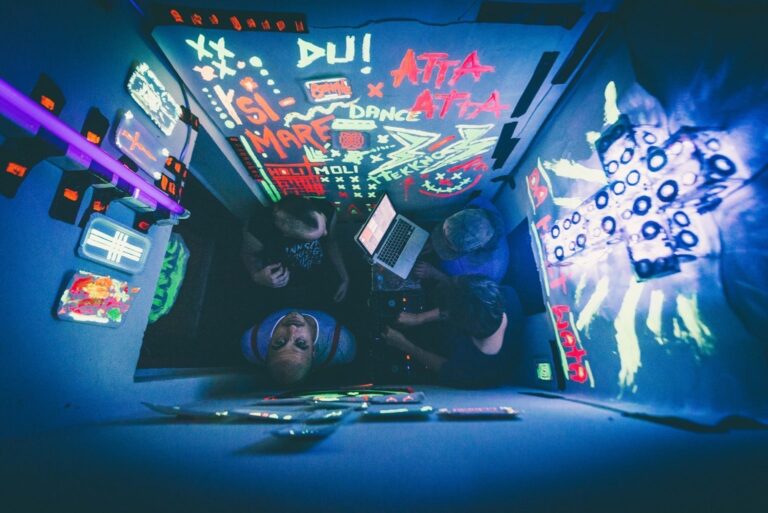 Fotocredit: Karin Hackl[/caption]
Fotocredit: Karin Hackl[/caption]
Rituals of Transgressive Biotechnology
SANTA SANGRE - is an esoteric journey in which participants will unlearn the taboos and myths around menstrual blood and through alchemical activities they will hack, transform and enjoy the most controversial fluid of the human body.
FLINTA people with and without menstrual blood are welcome to bring their sexual and menstrual fluids and join our coven laboratory.
Through ritualistic practices and transgressive lab experiments, we will reclaim pleasures, challenge oppression, and explore new paths of empowerment.
Join us in celebrating the erotic elixir of unholy fluids.
We have been raised to feel ashamed about the dirtiness and impurity of our bodies. We have been taught to keep certain things private, to silence our flesh, to fear the stains, the smell, the color and the liquid sensation between legs.
We have been told to suppress our desires and pleasures, to feel ashamed of exposing and getting our hands wet with our own bodily fluids.
So the time has come to forgather in new covens, under new moons. Join us in our esoteric journey through alchemical processes, bitter spells and sci-fi erotical experiences to reverse the taboo and delve into the depths of the provocative and explicit, embracing the potency of the forbidden and the sensual.
Aligning with the moon phases and engaging in transgressive lab experiments, we will transcend the boundaries of traditional practices, blurring the lines between science and sorcery while celebrating the sensuous allure of unholy fluids under the microscope.
Alma de Bruixes is a nomadic collective of biohackers witches who see little difference between a speculum and a sex toy. Weaving like a spell biomaterials, DIY biology, gynaecology and lubricants for the pleasure of self-exploration. Born from the union of ALMA Futura, which studies and develops tools for radical change in vaginal and gender health,and Bruixes-Lab, a nomadic laboratory of biohacking, sextech and witchcraft rituals.
Founded by Cristina Dezi, Isabel Farina and Giulia Tomasello.
[caption id="attachment_1506" align="alignnone" width="768"] Fotocredit: Cristina Dezi[/caption]
Fotocredit: Cristina Dezi[/caption]
[caption id="attachment_1508" align="alignnone" width="768"]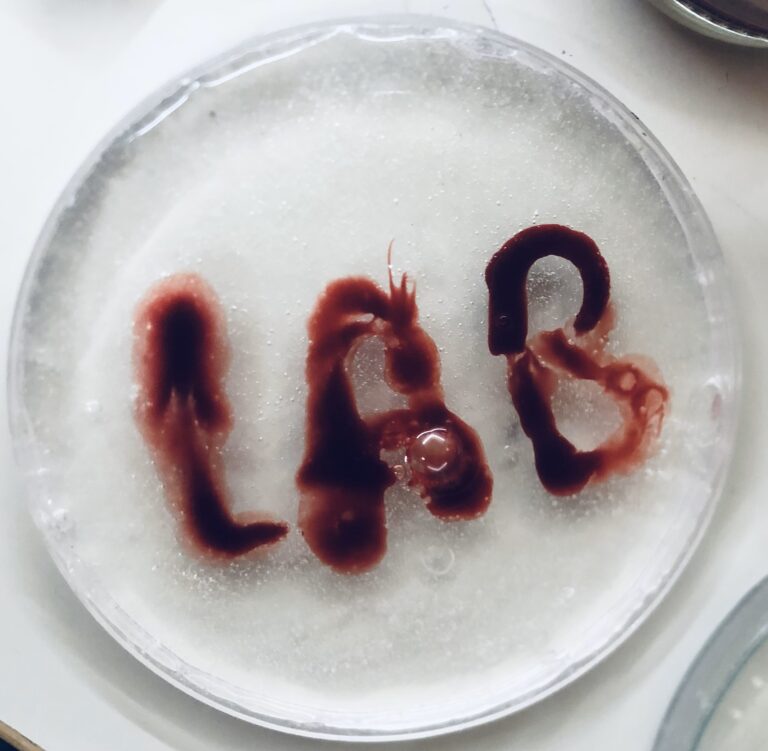 Cristina Dezi[/caption]
Cristina Dezi[/caption]